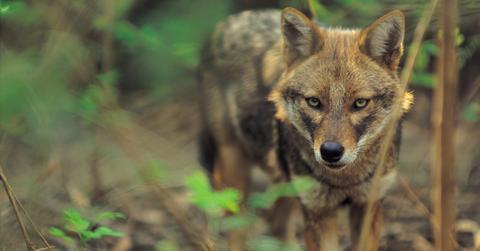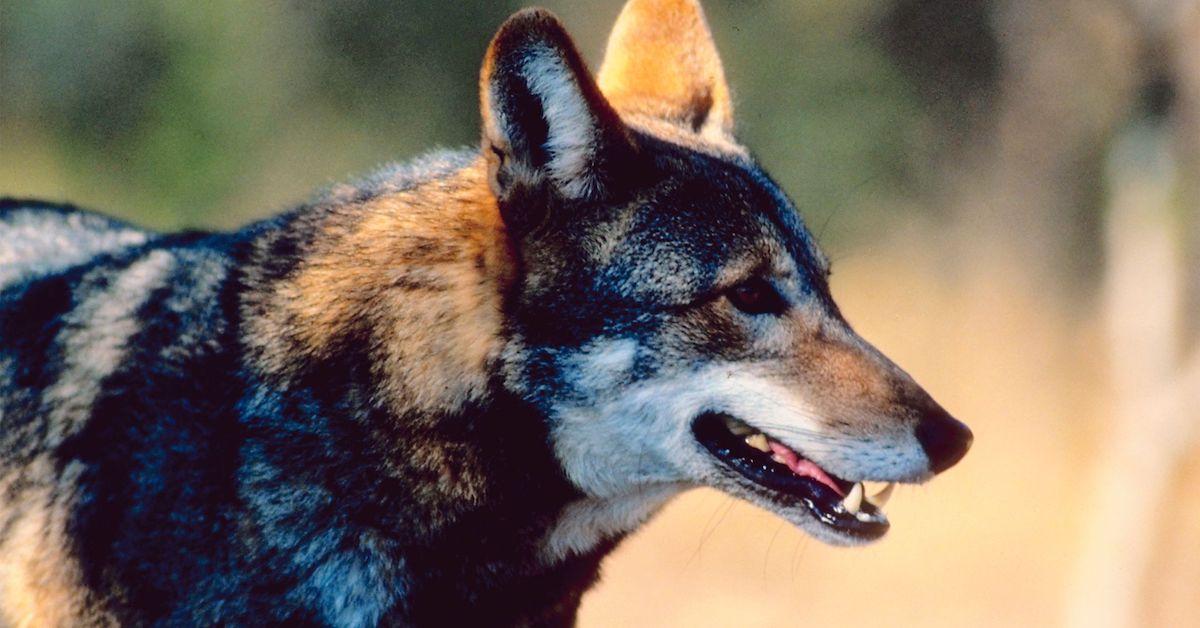Red Wolves Now Only Exist in One U.S. State — but Why Are They Endangered?
Updated March 10 2021, 3:34 p.m. ET

One of the most important ways to protect mother nature is by abiding by conservation efforts. Whether they're saving the oceans, protecting the plants, or saving wildlife, conservation efforts are an essential way to maintain the beauty of planet earth. However, conservation efforts sometimes fall short, and in some cases, it's too little, too late.
Red wolves, for example, are endangered to the point that they only naturally exist in one U.S. state — only 10 are left of them are currently living in the wild. That said, keep reading for more on why the species' numbers are dwindling right now.

Why are red wolves so endangered?
As previously mentioned, there are about 10 red wolves left in the wild, and all of them currently live in North Carolina. According to U.S. Fish and Wildlife Service (USFWS), the species was once extremely common, but was devastated by exhaustive predator control, as well as habitat destruction, which are both highly unfortunate results of human activity.
In 1973, the USFWS had conservation plans to capture and breed red wolves, as per The Guardian, and by 1980, the species was declared extinct in the wild. However, after seven more years of breeding in captivity, they were reintroduced into the wild, at a national wildlife refuge called Alligator River in North Carolina. By 2011, there were upwards of 130 red wolves in the wild, but by 2016, numbers had plummeted once again, with only 60 left. Why did this happen? Humans, once again.
For the most part, the species' degradation was due to humans — landowners, specifically — who had been mistaking coyotes for red wolves, and shooting them. They're difficult to tell apart, particularly at night. And although killing a protected animal by the ESA is illegal, it's legal to kill an animal that is harming you, your livestock, or pets.

What is being done to bring back red wolves?
Conservation organizations brought the USFWS to court in 2015, after the organization decided to stop releasing captive red wolves back into the wild. This caused the species to continue progressively dying out, though the program has since been reinstated after the district court ruled the USFWS must do so. They found the USFWS violated the ESA and discontinued the issuance of permits to kill red wolves. Now, they are continuing to breed in captivity to hopefully be released soon.
“The [red wolf] program has almost entirely crumbled since I’ve been working here,” said Heather Clarkson, who works with the environmental charity Defenders of Wildlife, as per The Guardian. “It took about 20 years to get the program to a strong place, that’s the really sad part. Because now it’s crashed. Disappointed barely scratches the surface.”
Why is conservation important?
Conservation is crucial in maintaining biodiversity. If a certain species dies out, its predators will lose their source of food. And, likewise, their prey — whether it's an animal or plant — will start to overpopulate. Different species create balance, in that regard, and each fulfills a different niche in their natural animal societies.
According to the WWF shares, humans, for the most part, are 100 to 1,000 times more responsible for animal extinction than natural extinction. About 60 percent of animal populations have died out in the last 40 years, and the damage has been irreparable.
The degradation of red wolves as a species in the U.S. has been beyond devastating, but hopefully these revived conservation efforts that were reinstated at the beginning of 2021 will bring them back — however, only time will tell.